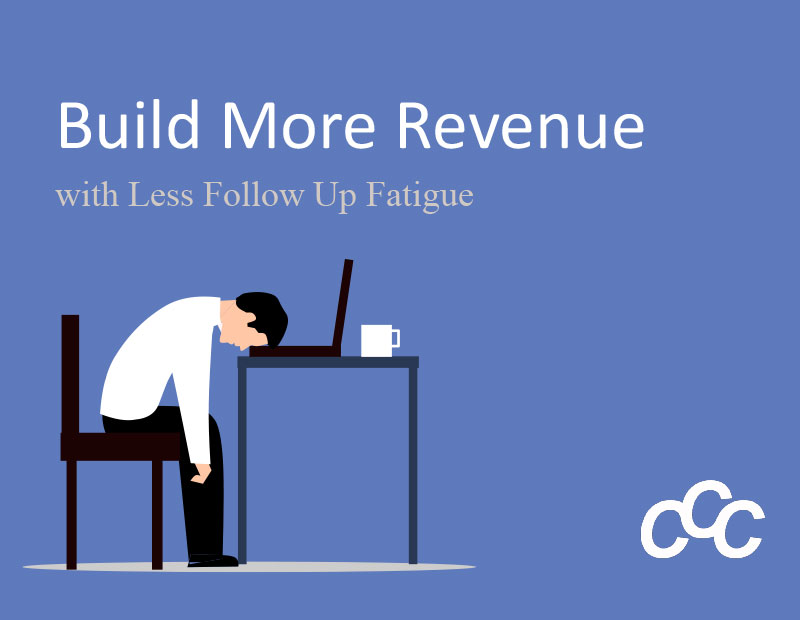Follow-up is the 1 factor that can differentiate you from every other salesperson out there. We all know our markets, have refined our value propositions, and use social media so the field is flat. Only hustle or follow-up is left.
What Makes Follow-Up a Differentiator?
We often hear that it takes 12 engagements to close 80% of the sales in the U.S. According to Microsoft:
- 50% of salespeople have stopped following up after 1 contact.
- 89% of salespeople have stopped following up after 4 contacts.
- At the 8th contact, you are the only salesperson still following up.
- After the 9th contact, you have a 90% probability of being chosen when the buyer is ready.
Based on these statistics, where do you fit in? As owners, sales managers, and salespeople, the numbers are both motivating and daunting.
Follow-Up is Overwhelming
It sure is. We’ve documented that follow-up can be 50% of a salesperson’s time in past blogs. Do the math for yourself based on how many new contacts you meet each week, the number of engagements, and the amount of time spent per engagement.
Follow-up is also a lot of fun. Grabbing coffee and meeting with prospects is a blast. Except it becomes tedious at high volumes, includes many repetitive, manual tasks, and needs to be tracked to make it effective. Your handwritten notes are on sticky notes, multiple paper lists, and spreadsheets but not at your fingertips.
What Can You Do About Being Overwhelmed?
What can you do to accelerate your follow-up and reduce overwhelm? Take advantage of your CRM and let it do half of your work. Use the saved time to focus on your best clients and prospects. The result will be increased sales!
Here are ways to use your CRM to close more sales with less follow-up fatigue (FUF):
- Send repetitive emails using personalized email templates.
- Trigger email drip campaigns to prospects based on preset criteria.
- Use the sales funnel to trigger internal reminders to salespeople, reach out to prospects, and track every opportunity.
- Personalize promotions to clients based on their preferences and buying patterns.
- Complete tasks based on deadlines.
- Keep tasks, notes, emails, and quotes with each contact record so that you can review your history prior to meeting the contact.
- Share key performance indicators (i.e. conversion rates, average deal size) with sales reps to monitor performance.
These are illustrative of the “Super Powers” available from a robust CRM.
What If You Don’t Have a CRM?
Research shows that salespeople who use a CRM close more sales, increase conversion rates, and reduce client acquisition costs. Getting the right CRM depends upon your needs as CRMs come in all sizes, shapes, and price ranges.
Not sure what you need? Give us a call so we can share with you what we have learned about CRMs so you can choose the right one for you.





